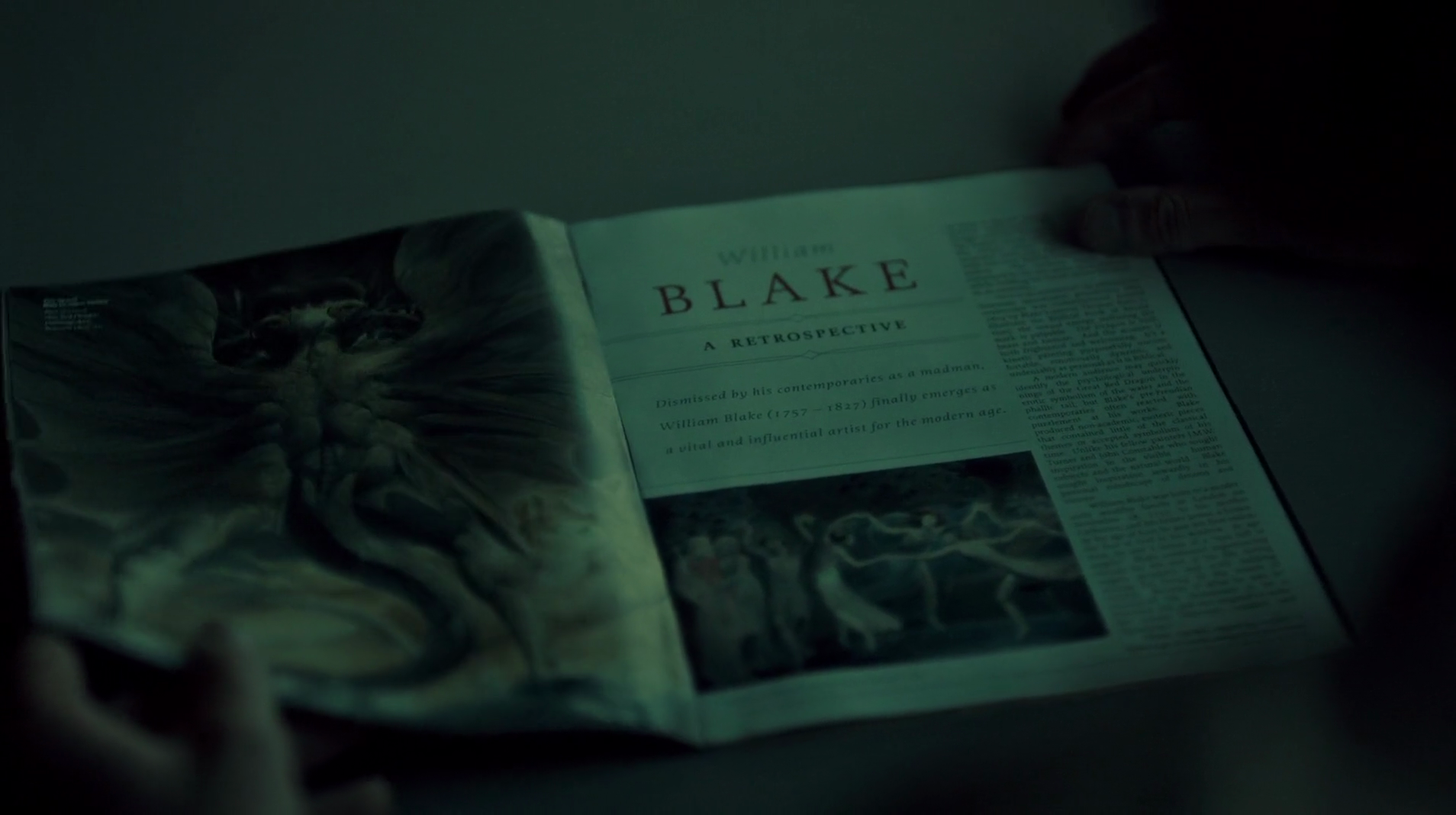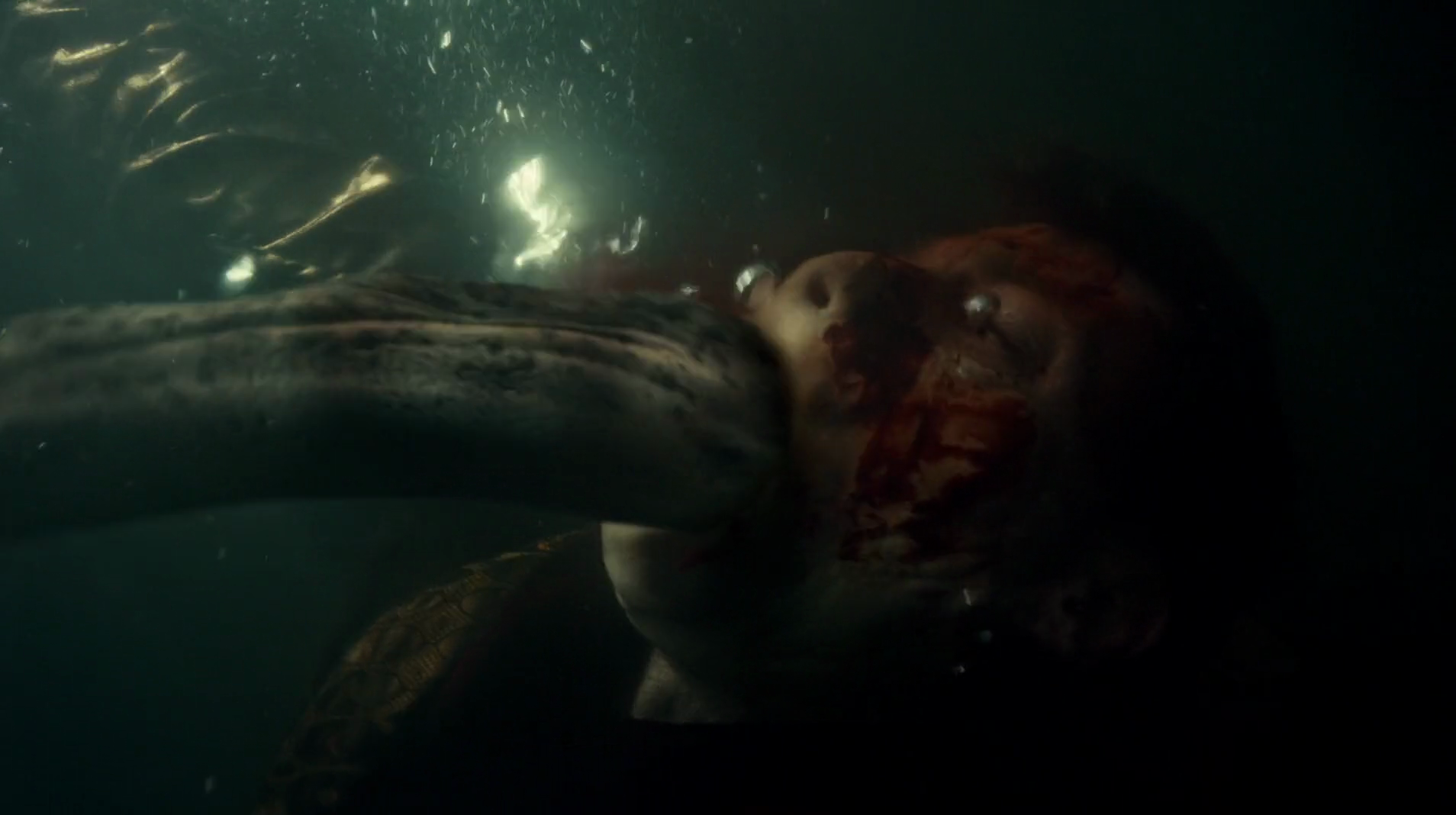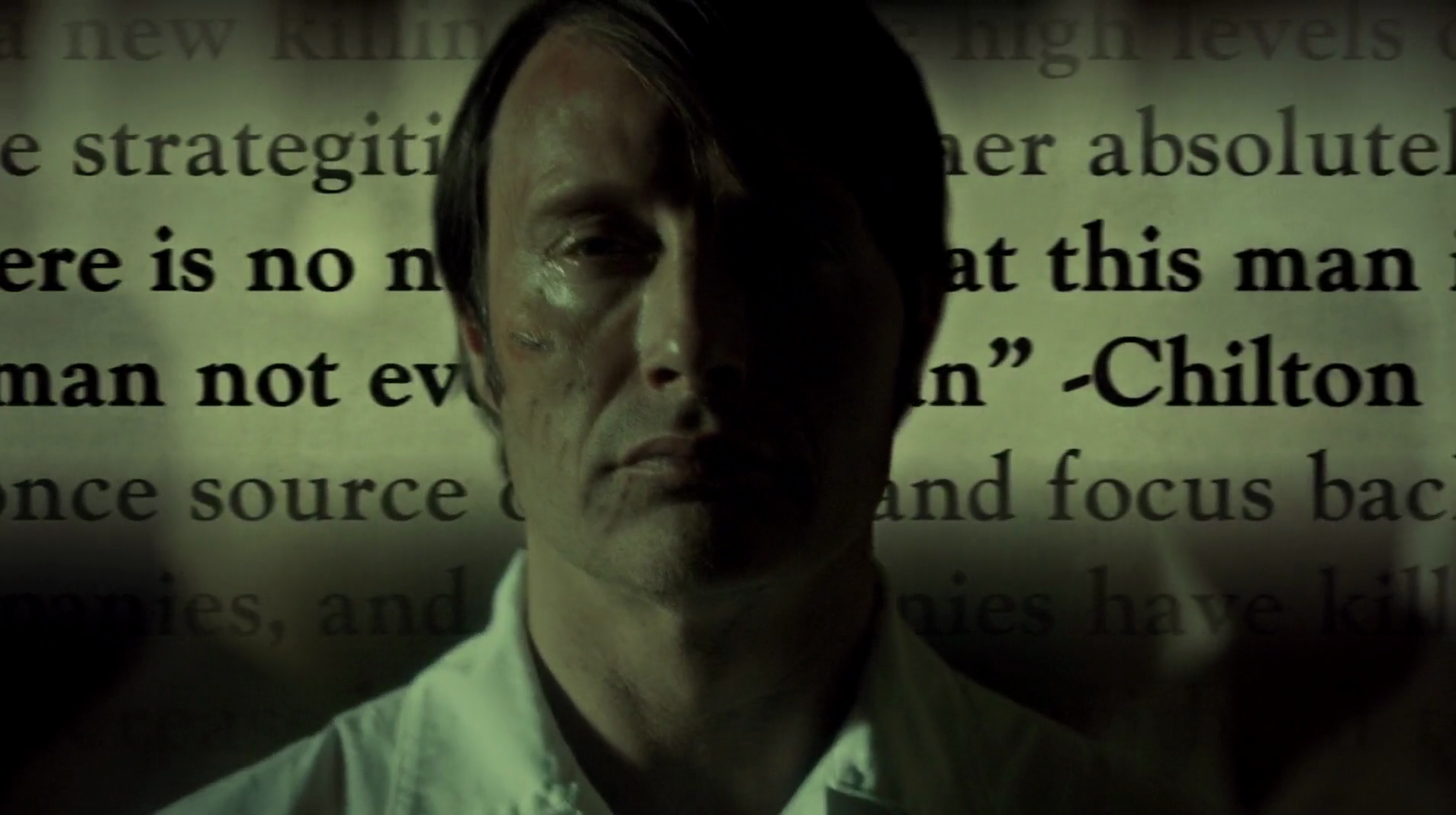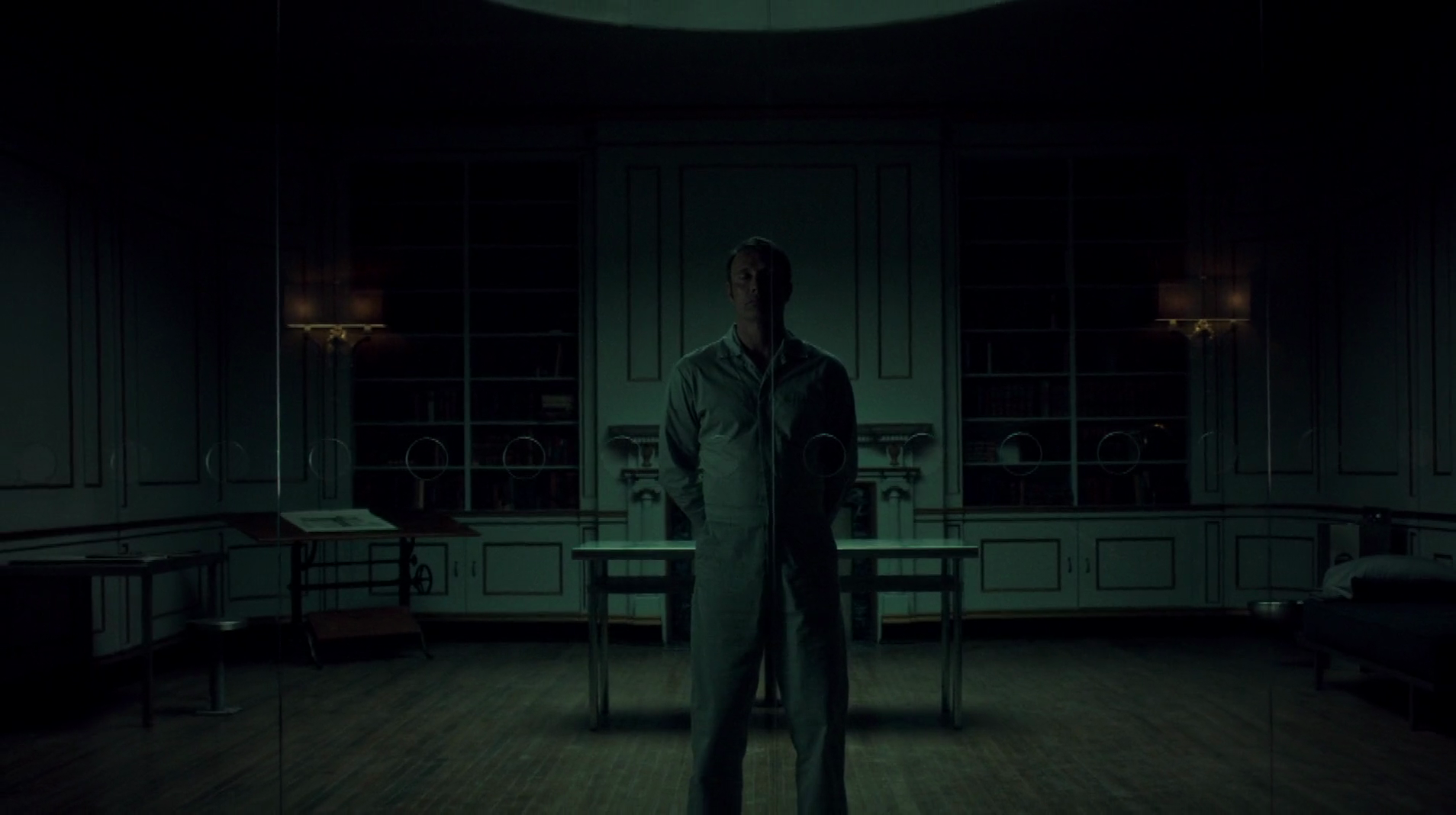Kickstarter Update/Capaldi Entry List
Since I did my usual “forgetting to queue Proverbs of Hell for a Monday,” I figured I should provide a Kickstarter update instead. At the time of writing, we’re at $8069. We hit the Algebra of Ice stretch goal over the weekend, which means we’re now approaching the $9000 stretch goal of The Unknown, which from Big Finish’s Diaries of River Song series. I haven’t listened to it yet, but it sounds fascinating. The hook is simple: River Song meets the Seventh Doctor. This is self-evidently a good idea. River’s entire M.O. is that she destabilizes the Doctor’s place in the narrative. She can do the things they do, and knows more than them. That’s especially true in stories before A Good Man Goes to War, which obviously this is. The Seventh Doctor, on the other hand, stands out even among the Doctors. He’s manipulative and has foreknowledge of events in ways they don’t. That’s a stereotype of his character in the same way “the loud obnoxious one” is of Six, but it’s also similarly true. So having River meet him is, in its own way, as much of a limit point for her character as meeting the Twelfth Doctor was. It’s a hook that does to River Song what she usually does to Doctor Who. Outside of pornographic fanfiction (where the answer is clearly the Third Doctor) the Seventh Doctor is straight-up the most interesting past Doctor for River to meet save arguably the First? Can Guy Adams rise to the occasion and hit his obviously laid out marks? Can Big Finish avoid screwing up a self-evidently good idea for once? I don’t know. I’m actually kind of nervous to find out because I am so often frustrated by Big Finish and I do so love this idea.
So if me tackling that sounds interesting and you haven’t backed the Kickstarter yet, now is a great time. If you have backed the Kickstarter and haven’t spread word on social media, now is a great time. If you’ve done all of those things, on the other hand, now could be a great time to do them again. But it could also be a good time for some self-care. Get a drink of water. Have a small and healthy snack. Look at some cute cat videos on YouTube. You’ve earned it.
I also wanted to give an update on the Patreon campaign for the Peter Capaldi era of TARDIS Eruditorum. Right now that’s at $345, a mere $5 away from The Full Eruditorum, complete with Pop Between Realities, You Were Expecting Someone Else, and Outside the Government entries. One way or another that will start on March 19th. But will it start with Deep Breath (currently readable by Kickstarter backers) or Pop Between Realities, Home in Time for Tea (Captain America: Winter Soldier, The Lego Movie, It Follows)? While odds look good for the latter, it’d be good to get well over $350 so that’s nice and secure and we don’t suddenly drop down to going episode-only in the middle of the run.…
Fromm Frankfurt With Love (Part 1)
 Let’s be cheeky and try to understand something about the Austrian School using the ideas of the Frankfurt School. The two are, in any case, now permanently locked-together in a Reichenbachian struggle. At least, the bastard ideological descendants of the Austrian School seem to imagine this. For some reason. So fuck it, let’s ignore the fact that this is actually a delusional notion (at least as it is generally meant), and see what happens when they actually fight.
Let’s be cheeky and try to understand something about the Austrian School using the ideas of the Frankfurt School. The two are, in any case, now permanently locked-together in a Reichenbachian struggle. At least, the bastard ideological descendants of the Austrian School seem to imagine this. For some reason. So fuck it, let’s ignore the fact that this is actually a delusional notion (at least as it is generally meant), and see what happens when they actually fight.
In his 1941 book Fear of Freedom, the Marxist-Freudian Erich Fromm elaborates a dialectical account of human consciousness in late modernity through the prism of a dichotomous conception of the concept of freedom. For Fromm, freedom can be divided into the very dyad of ‘freedom from’ (negative freedom) and ‘freedom to’ (positive freedom) that we have already raised in connection with Hayek. Hayek, the Constant Reader will remember, is (ostensibly) concerned for the most part with ‘freedom from’, that is: absence of coercion. Fromm says that freedom from (hence ‘FF’), while desirable and often fought for, carries dangers within it. It is not a guarantee of happiness. Indeed, it can generate unhappiness, and from thence destruction. (To be clear: Fromm is not offering this view as an apologia for tyranny.) Essentially, Fromm’s idea boils down to saying that the absence of political or social coercion can be deeply unsatisfying because FF, being essentially negative (one does not, for instance, actively experience the absence of a policeman’s boot in the teeth as a pleasure), leaves us without ‘freedom to’ (hence ‘FT’). In capitalist society, we remain alienated.
Fromm goes on, in Marx’s Concept of Man (1961), to describe humanity, alienated in capitalist society, as having a self-orientation which he calls a “marketing orientation”, in which
…man experiences himself as a thing to be employed successfully on the market. He does not experience himself as an active agent, as the bearer of human powers. He is alienated from these powers. … His sense of self does not stem from his activity as a loving and thinking individual, but from his socioeconomic role. If things could speak, a typewriter would answer the question “Who are you?” by saying “I am a typewriter,” and an automobile, by saying “I am an automobile,” or more specifically by saying, “I am a Ford,” or “a Buick,” or “a Cadillac.” If you ask a man “Who are you?”, he answers “I am a manufacturer,” “I am a clerk,” “I am a doctor–or “I am a married man,” “I am the father of two kids,” and his answer has pretty much the same meaning as that of the speaking thing would have. That is the way he experiences himself, not as a man, with love, fear, convictions, doubts, but as that abstraction, alienated from his real nature, which fulfills a certain function in the social system. His sense of value depends on his success: on whether he can sell himself favorably, whether he can make more of himself than he started out with, whether he is a success.
Kickstarter Week One Update
Just wanted to use a dead day to give an update on how the TARDIS Eruditorum Volume 7 Kickstarter is going and to highlight one of the reward tiers I’m offering for this Kickstarter that I know will be of interest to some of you. So, after the best first couple of days any of my Kickstarters have ever had (yay!) the Kickstarter has dried up pretty significantly (boo!), ticking up only $60 or so the last two days. At the moment we’re stuck pretty grimly in the low $7000s, which is fine and delightful, but a ways off from some pretty attractive stretch goals like the Kate Orman interview at $10,000 or me slogging through The Pit at $14,000. So if you haven’t backed yet, well, now’s a great time to. But more importantly, even if you don’t have the money to back, I want to beg you again to spread the word about the Kickstarter. Post to social media. Right now a dozen and change of you have posted to Twitter about the Kickstarter. That’s great, and thank you, but I know more than a dozen of you are reaeding this, so please. Post the Kickstarter link. Here it is again. Just say something like “hey, here’s a cool Doctor Who Kickstarter I’m really hoping will make some stretch goals.” Twitter, Tumblr, Facebook, anywhere. I promise, your friends won’t hate you for it, and it really does make a difference. More than $2000 of the current Kickstarter total is from social media links.
OK. That’s the begging done. Now for some fun bits. First, I want to highlight the high-roller reward tier, the $150 signed and numbered hardcover versin of the book. After doing the Sigil and Color editions of Neoreaction a Basilisk, I came to the conclusion that Kickstarter-exclusive special editions are a hella fun reward perk. And so I’ve decided to do something I’ve always wanted to do, but that didn’t really make financial sense before, namely have a hardcover edition of the book. I haven’t looked too closely into printing on it yet, but my plan is to have it be a nice, high-quality edition of the book. And if you’re worried it won’t match the rest of your books, I’ll make a deal with you. Right now there are 11 hardcovers sold. If that number gets to 20, I’ll figure out how to do hardcover editions of Volumes 1-6 for the truly ridiculous few. (And no, those won’t be $150 a pop. They won’t be cheap, but I’ll make sure catching up is as affordable as possible.)
Second, I want to talk about the next stretch goal, Lloyd Rose’s The Algebra of Ice. Or, rather, I want to edit and expan on Twitter thread from a few days ago about why this book would be super cool to cover:
I can’t hype this on the basis of Big Name Authors like I could Nightshade or Springhill, or even Master. This is by a woman named Lloyd Rose.…
Thoughts on Dynasty Warriors 9: Records of War
The Proverbs of Hell 35/39: And The Woman Clothed With The Sun
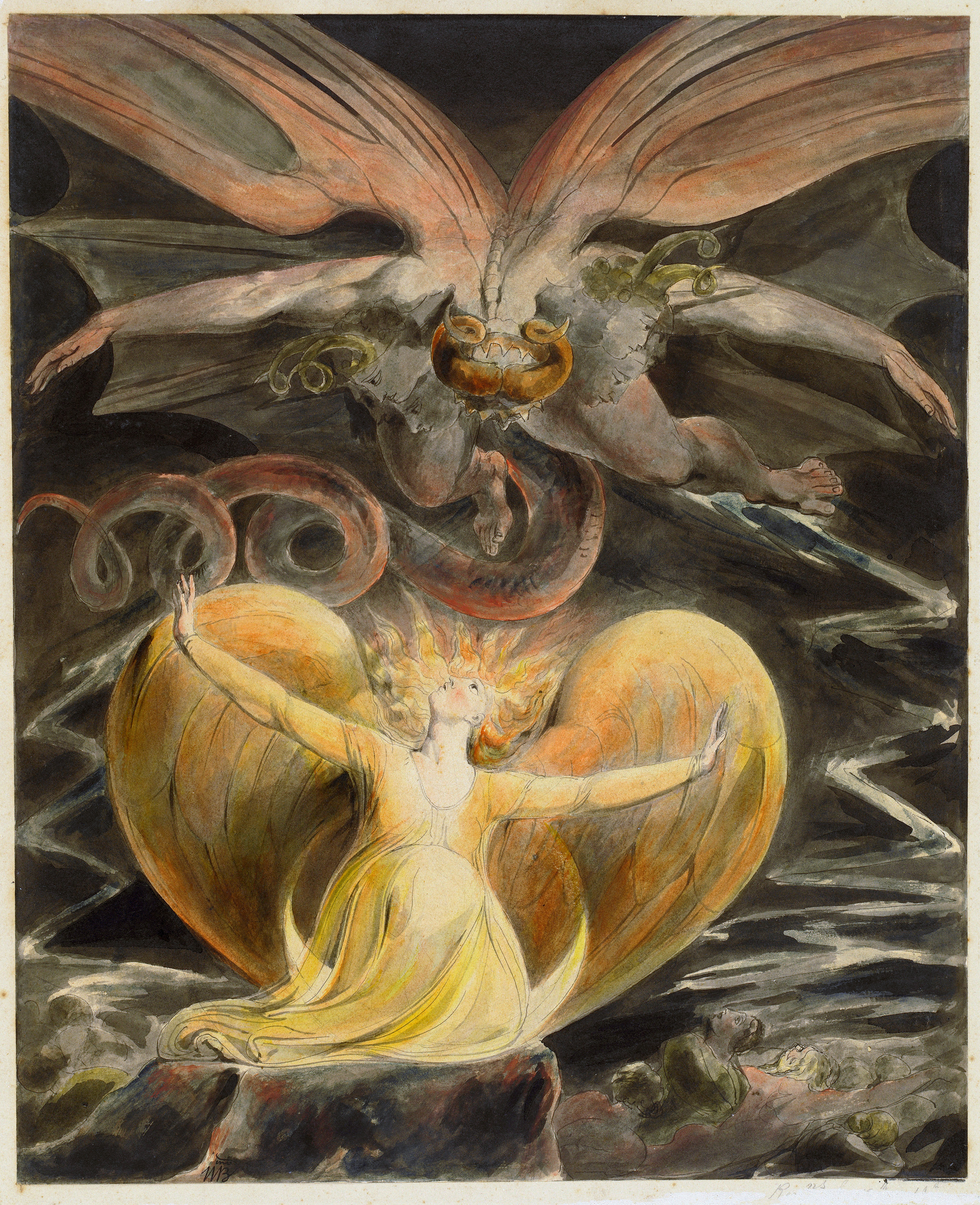 AND THE WOMAN CLOTHED WITH THE SUN: This is not the picture that Dolarhyde worships, which is “The Great Red Dragon and the Woman Clothed in Sun.” The distinction flummoxed Harris himself, who got the wrong one in Red Dragon, and the most satisfying explanation for this preceding the episode named after the story’s central painting is that Fuller is providing an homage to the error. In any case, this painting is essentially Dolarhyde’s from the opposite perspective. The result is that the woman is the central object of the painting, with the Dragon looming above her, mimicking our own act of looking at her. The picture Dolarhyde prefers is on the whole the far more interesting framing, which we’ll get to next week.
AND THE WOMAN CLOTHED WITH THE SUN: This is not the picture that Dolarhyde worships, which is “The Great Red Dragon and the Woman Clothed in Sun.” The distinction flummoxed Harris himself, who got the wrong one in Red Dragon, and the most satisfying explanation for this preceding the episode named after the story’s central painting is that Fuller is providing an homage to the error. In any case, this painting is essentially Dolarhyde’s from the opposite perspective. The result is that the woman is the central object of the painting, with the Dragon looming above her, mimicking our own act of looking at her. The picture Dolarhyde prefers is on the whole the far more interesting framing, which we’ll get to next week.
HANNIBAL: That’s the same atrocious aftershave you wore in court.
WILL GRAHAM: Hello, Dr. Lecter.
HANNIBAL: Hello, Will. Did you get my note?
WILL GRAHAM: I got it. Thank you.
HANNIBAL: Did you read it before you destroyed it? Or did you simply toss it into the nearest fire?
WILL GRAHAM: I read it. And then I burned it.
HANNIBAL: And you came anyway. I’m glad you came. My other callers are all professional. Banal psychiatrists and grasping second-raters. Pencil-lickers trying to protect their tenure with pieces in the journals.
WILL GRAHAM: I want you to help me, Dr. Lecter.
HANNIBAL: Yes, I thought so. Are we no longer on a first-name basis?
WILL GRAHAM: I’m more comfortable the less personal we are.
HANNIBAL: Your hands are rough. I smell dogs and pine and oil beneath that shaving lotion. It’s something a child would select, isn’t it? There a child in your life, Will?
WILL GRAHAM: I’m here about Chicago and Buffalo. You’ve read about it, I’m sure.
HANNIBAL: I’ve read the papers. I can’t clip them. They won’t let me have scissors, of course. You want to know how he’s choosing them.
WILL GRAHAM: Thought you would have some ideas.
HANNIBAL: You just came here to look at me. Came to get the old scent again. Why don’t you just smell yourself?
We may as well just do the entire exchange here. The sections in boldface are original to the show. The remainder is more or less from the book, with a few small adjustments. (It’s a card in the book, the “dogs and pine oil” is new, and the murders have been moved north from their original Atlanta and Birmingham locations.) This exchange, of course, is the most iconic in Red Dragon, and for obvious reason. Fuller to do anything other than let Mikkelsen and Dancy at it would have been criminal. Matthew Morettini has done a supercut of the three adaptations that’s interesting a much in its disjuncts as its unities. Within the context of Hannibal, however, what jumps out most aggressively is the degree to which the scene is stilted. Fuller’s version of these characters has become so much more than what is in Harris’s book, and while Mikkelsen and Dancy acquit themselves well upon the lines, it still feels momentarily odd to see them in this more stripped down iteration.…
$5000 in Two Days. Dang. (Also two new reward tiers)
After what was not only the best launch day i’ve ever had for a Kickstarter but the best second day I’ve ever had as well, the TARDIS Eruditorum Volume 7 Kickstarter has managed to break $5000 in just two days. I am stunned, humble, and unbelievably grateful. That’s not only enough to print the book, but enough to get bonus essays on Nightshade, Springhill (a mostly overlooked and forgott4en Russell T Davies supernatural soap opera worked on by Gareth Roberts, Paul Cornell, and Frank Cottrell-Boyce), and “Was He Half-Woven On His Father’s Side?”, my essay on Looms and whether they make any goddamn sense. The next couple stretch goals are on the Andrew Cartmel-overseen season of Casualty (I got my hands on it!), the Big Finish audio Master, and Lloyd Rose’s novel The Algebra of Ice. Plus we’re halfway to the Kate Orman interview!
Anyway, by popular request I’ve added two new reward tiers for people who want to catch up on the Eruditorum Press catalog, but don’t necessarily want all seven TARDIS Eruditorum Books. There’s a $10 ebook threepack, and a $60 print threepack. Either can include Volume 7 if you like, but can also include Volumes 1-6, The Last War in Albion, A Golden Thread, Guided by the Beauty of Their Weapons, or Neoreaction a Basilisk. (And the print one can include Recursive Occlusion too if you like.) These can be added to existing pledges, so if you’d like them but have already backed at another tier I am happy to separate you from more of your money. As the Daleks say in “Doctorin’ the TARDIS,” “DOSH DOSH DOSH LOADSAMONEY!”
Once again, the Kickstarter’s here. Thanks again. …
Salamancans and Austrians
 In his researches into Hayek’s role in the decision to hold the 1981 conference of the Mont Pèlerin Society (MPS) in Pinochet’s Chile, Corey Robin discovered a 1979 letter from Hayek to another MPS member in which he enthusiastically – and, as it transpires, successfully – endorsed Madrid as a conference venue.
In his researches into Hayek’s role in the decision to hold the 1981 conference of the Mont Pèlerin Society (MPS) in Pinochet’s Chile, Corey Robin discovered a 1979 letter from Hayek to another MPS member in which he enthusiastically – and, as it transpires, successfully – endorsed Madrid as a conference venue.
For several years, Hayek had been growing increasingly excited about the possibility that “the basic principles of the theory of the competitive market were worked out by the Spanish scholastics of the 16th century.” For reasons still obscure to me, he seemed positively ecstatic about the notion that “economic liberalism was not designed by the Calvinists but by the Spanish jesuits.” (In his History of Economic Analysis, Schumpeter also had argued “that the very high level of Spanish sixteenth-century economics was due chiefly to the scholastic contributions.” But it didn’t seem to transport him in the way it did Hayek.)
Hayek insisted that the conference be shipped for a day 132 miles northwest of Madrid in order “to celebrate at Salamanca”—the university town where this specific branch of early modern natural law theory was formulated—”the Spanish origins of liberal economics.”
He got his way: the MPS members dutifully got into their buses and, like medieval penitents following their shepherd, made their pilgrimage to the birthplace of free-market economics
[My emphasis.]
As Robin notes, Schumpeter was also excited by this idea – as was Rothbard. Schumpeter called the Late Scholastics “the first economists”. Rothbard’s contention was that the Salamancans were yet more of the precursors to the Austrian School that he liked to find everywhere. Even today, Austrians are into the idea of the Salamancans being their precursors.
More generally, libertarians have a bit of a fetish for it. Alejandro Chafeun, one-time Randian, member of the Mont Pelerin Society, and president of the Atlas Foundation (a free-market think tank in case you couldn’t guess), wrote a book on the subject called Faith and Liberty which Mises dot org thinks highly of. I haven’t read Chafeun’s book, so I can’t comment on his conclusions, but I will say that I find the idea of modern economics being prefigured – to an extent – in the writings of Late Renaissance Catholic scholars perfectly plausible. Modern economics is an expression of capitalism and capitalism grew in the womb of Early Modern Europe, of which the Catholic Church was still the main ideological producer for a long time. Catholicism came to express nascent capitalism in its own way, much as did many pre-existing aspects of feudal Europe, even if Reformation ideas were also an expression of the rise of the new system. The ways in which power structures and ideologies respond to underlying economic changes are complex and non-schematic. Lutheranism arose partly from indignation at the sale of indulgences by the Church, itself an expression of the rising marketisation of feudal society.
It’s worth taking a moment here. As far as I’m aware, the most concise expression of the best version of the Marxist view of the relation between the Reformation and the rise of capitalism was written by Chris Harman in his A People’s History of the World:
…Historians have wasted enormous amounts of time arguing over the exact interrelation between capitalism and Protestantism.
TARDIS Eruditorum Volume 7 Kickstarter
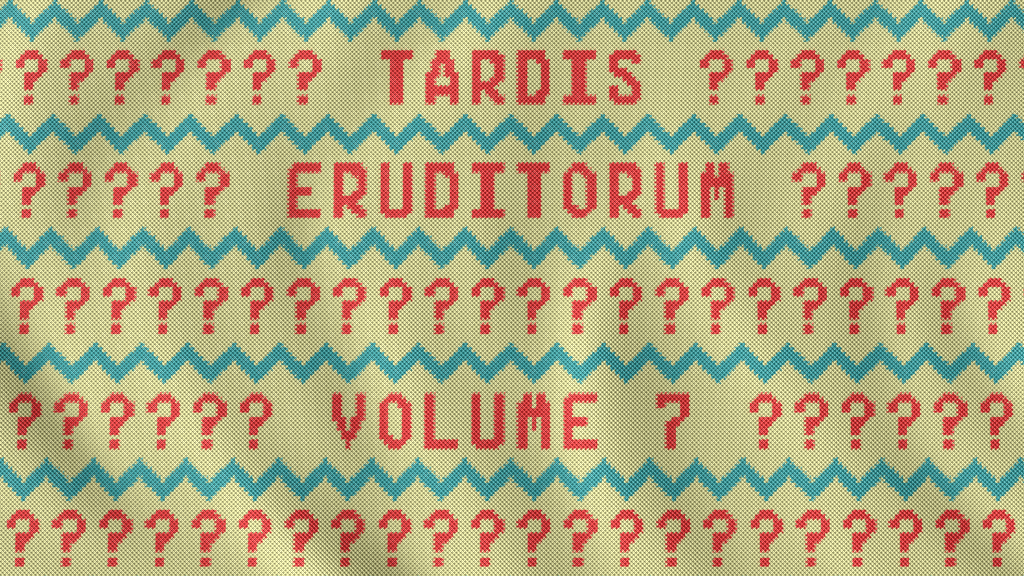 Eruditorum Press is pleased to announce the launch of our latest Kickstarter, for TARDIS Eruditorum Volume 7: Sylvester McCoy. You can check it out here. The goal is a modest $2000 which, given that it’s made it to $165 in the time it took me to log into the site and start this post, I expect we’re going to make, but there’s stretch goals every $1000 after that all the way up to $14,000, which will add up to thirteen bonus essays if we can make it through them all. The crown jewel is probably at $10,000, where I’ll do an interview on the Sylvester McCoy era with the legendary Kate Orman, but there’s good stuff throughout, from covering Mark Gatiss’s Doctor Who debut Nightshade all the way up to finally writing about The Pit. (And no, that’s not the actual cover; it’s just what James had time to design this month. Though I do kinda love it.)
Eruditorum Press is pleased to announce the launch of our latest Kickstarter, for TARDIS Eruditorum Volume 7: Sylvester McCoy. You can check it out here. The goal is a modest $2000 which, given that it’s made it to $165 in the time it took me to log into the site and start this post, I expect we’re going to make, but there’s stretch goals every $1000 after that all the way up to $14,000, which will add up to thirteen bonus essays if we can make it through them all. The crown jewel is probably at $10,000, where I’ll do an interview on the Sylvester McCoy era with the legendary Kate Orman, but there’s good stuff throughout, from covering Mark Gatiss’s Doctor Who debut Nightshade all the way up to finally writing about The Pit. (And no, that’s not the actual cover; it’s just what James had time to design this month. Though I do kinda love it.)
You may be wondering why I’m doing a Kickstarter for Volume 7 given that I didn’t for the initial releases of any previous TARDIS Eruditorum. Two basic reasons. 1) Books I sell directly via Kickstarter net me a far higher royalty than books sold through Amazon, and so I’m moving to a Kickstarter-based model for all future releases. 2) I’m kinda broke. It’s nothing crushing and unmanageable; I’ve got a month-to-month income that’s roughly commensurate with expenses. But my saving account is currently at “ha ha ha no,” and that’s kinda stressful. Hence Kickstarter.
But that’s depressing, so let’s talk about cool stuff. Like the Kickstarter-exclusive hardcover edition that will be signed, numbered, and never for sale ever again after February 28th. Or the opportunity to catch up on the entire TARDIS Eruditorum series in print or digital at a nice and healthy discount. Or, if you really don’t have much but still want to support, at just $1 you can read a preview of the TARDIS Eruditorum entry for Deep Breath. (Which, btw, the Patreon is just $19 away from the full compliment of Capaldi-era Pop Between Realities, Outside the Government, and You Were Expecting Someone Else essays if you want to back that too.)
Whatever you can give is extremely welcome. And if the money isn’t going to work out for you to donate this month, you can at least spread the link far and wide. Word of mouth is effective marketing. Twenty seconds on Twitter or Facebook makes a real difference to me.
I’ll be noisy throughout the month with Kickstarter promotion, including, in the very near future, the running order for the Capaldi era. Thanks for your support, and for reading. And one more time, here’s the Kickstarter link.…
The Proverbs of Hell 34/39: The Great Red Dragon
 THE GREAT RED DRAGON: After thirty-three episodes named after food, we change gears abruptly to episodes named after works of art by William Blake. This episode does not designate a specific work but rather a series of four paintings in a larger series of water colors illustrating the Bible completed between 1800 and 1806 four of which have titles beginning “The Great Red Dragon.” Thankfully we still have food to illustrate this episode as part of the delightfully barmy decision to let Hannibal still cook in prison, and we can get on to the Blake works starting next episode.
THE GREAT RED DRAGON: After thirty-three episodes named after food, we change gears abruptly to episodes named after works of art by William Blake. This episode does not designate a specific work but rather a series of four paintings in a larger series of water colors illustrating the Bible completed between 1800 and 1806 four of which have titles beginning “The Great Red Dragon.” Thankfully we still have food to illustrate this episode as part of the delightfully barmy decision to let Hannibal still cook in prison, and we can get on to the Blake works starting next episode.
Although Time has on a few occasions in its history had articles on Blake exhibitions, he is not generally considered cover material, and if he were it seems unlikely The Great Red Dragon and the Woman Clothed with the Sun would be the image gone for. But for all its mild silliness, there’s a certain logic to having Dolarhyde encounter the Great Red Dragon in a print magazine, given that Dolarhyde exists in a constant tension with modernity, as we’ll get to.
The first thing to be emphasized about Dolarhyde is his intense physicality—he is, as they say, a beast. This is something of a novelty in Hannibal—there’ve been a handful of killers whose physicality has mattered in some sense (Randall Tier and Georgia Madden spring to mind), but none where the basic threat and danger of them is so rooted in raw puissance.
Finally the influence runs in the opposite direction as Hannibal shamelessly rips off Sherlock.
One step away from the outright defining image of Hannibal. It is notable, compared to other depictions of Hannibal in a cell, for its relative lushness—Hannibal’s cell is large and decorated with an ornateness that contrasts utterly with the Baltimore State Hospital for the Criminally Insane as depicted in Seasons One and Two, and he’s afforded a myriad of luxuries unlike the sparse hells usually associated with his incarceration. There are a number of reasons for the change. First, Hannibal here is a character we’ve spent thirty-three episodes with already, and does not need to be a beast at the heart of a terrible dungeon in order to be scary. Second, and somewhat contradictorily, Hannibal here is not monstrous in the same way as in previous versions. Hannibal has made much more peace with the inherent tension of revulsion and adoration the monster in a horror movie elicits. A grand room from which Hannibal grants audiences to lesser creatures is fully in line with what this version of the character is.
ALANA BLOOM: Congratulations, Hannibal. You’re officially insane.
HANNIBAL: There’s no consensus in the psychiatric community what I should be termed.
ALANA BLOOM: You’ve long been regarded by your peers in psychiatry as something entirely Other. For convenience, they term you a monster.
HANNIBAL: What do you term me?
ALANA BLOOM: I don’t. You defy categorization.
The previous episode asked whether Alana could ever have understood Hannibal. Certainly her attempted distinction between defiance of categorization and monstrosity points towards “no,” although the fault is just as plausibly Fuller and Lightfoot’s.…

